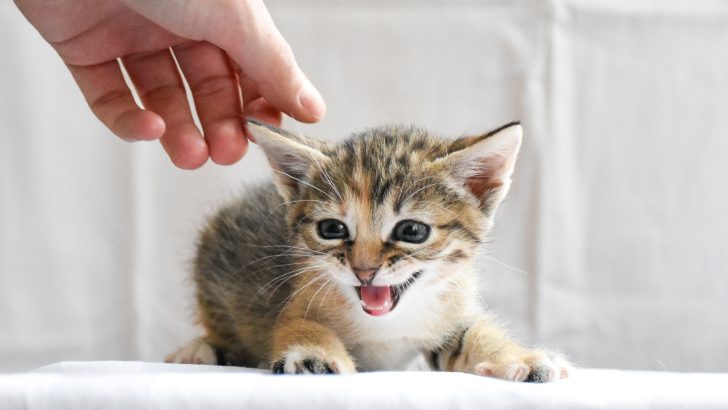Cats are curious creatures, right? Who would’ve thought you would be spending your day off researching whether a cat’s ears being warm means something negative? However, here you are and you’re freaking out because you haven’t found the answer you’ve been looking for.
And, don’t worry, we’re not here to judge your overly-attached parenting style. When you curl up on the couch, start cuddling with your fluffer, and watching Birdgerton, you’re not looking to burn your hand on your cat’s ears.
Kidding aside, there’s hardly anything more terrifying than experiencing a health scare related to your favorite four-legged friend.
“Have her ears always been that hot? Maybe she’s been sunbathing outside without me knowing… Or, maybe that’s something I should worry about?”
Of course, these thoughts might be running through your head because you’re accustomed to the notion that warmth symbolizes a fever or something worse.
But, we’re here to make sure you know there’s nothing to freak out over. More often than not, cats are warm because they’re cats.
Turns out that a normal cat’s temperature runs a little hotter than that of a human. To make things even better, cats love spending time snuggled under a blanket which makes them even warmer.
Therefore, when you’re twiddling your cat’s ears, you’re likely to notice they’re warmer than what you consider “normal.” And, considering you’re sitting there thinking to yourself, “My cat’s ears are warm, what’s up with that?” throw a glance at what we’ve gathered for you.
Do warm cat ears mean… nothing?
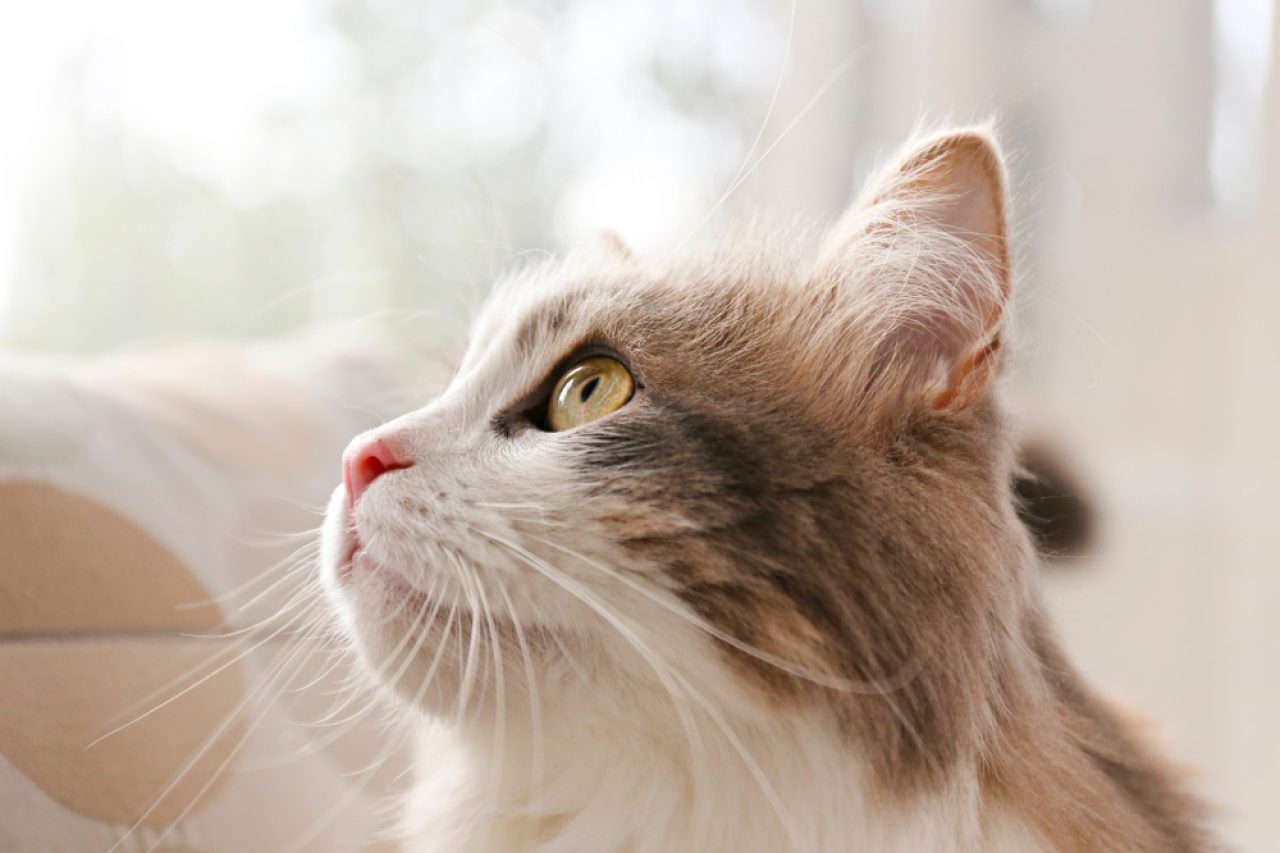
Though that might sound strange to a worried pet parent, warm cat ears don’t have to mean a thing! First things first, a cat’s body temperature differs from what we’re used to.
Anything up to 102.5° F appears to be purrfectly safe (even though most pet parents freak out when they take notice of the temperature). Here’s the thing, you’re probably surprised to learn that your cat’s ears are warm because you haven’t paid that much attention to them beforehand.
Sure, you cuddled with your fluffer on more than one occasion. And sure, you petted her ears and checked for parasites more times than you can remember.
But, you haven’t noticed anything’s “wrong” with her because she’s always been warm. Don’t get me wrong, a cat’s body temperature does fluctuate with the weather (more on that later on).
Her ears don’t have that much fluff and they’re pretty thin – which means they’re susceptible to those changes. As a matter of fact, her ears aren’t the only things that are warm or cold depending on the weather.
Her nose and paws tend to be at a different temperature than the rest of her body. Therefore, during those warmer months, her blood flows to these parts and releases excess heat. On the other hand, during those colder months, the opposite happens.
And, granted that you’re a visual creature, you only need to take a look at a Siamese cat to understand what we’re talking about. Of course, not every cat has her body temperature written across her body.
But, a Siamese does – temperature-sensitive points are typically the ones that are darker (ears, nose, paws).
Reasons why your cat’s ears might be warm
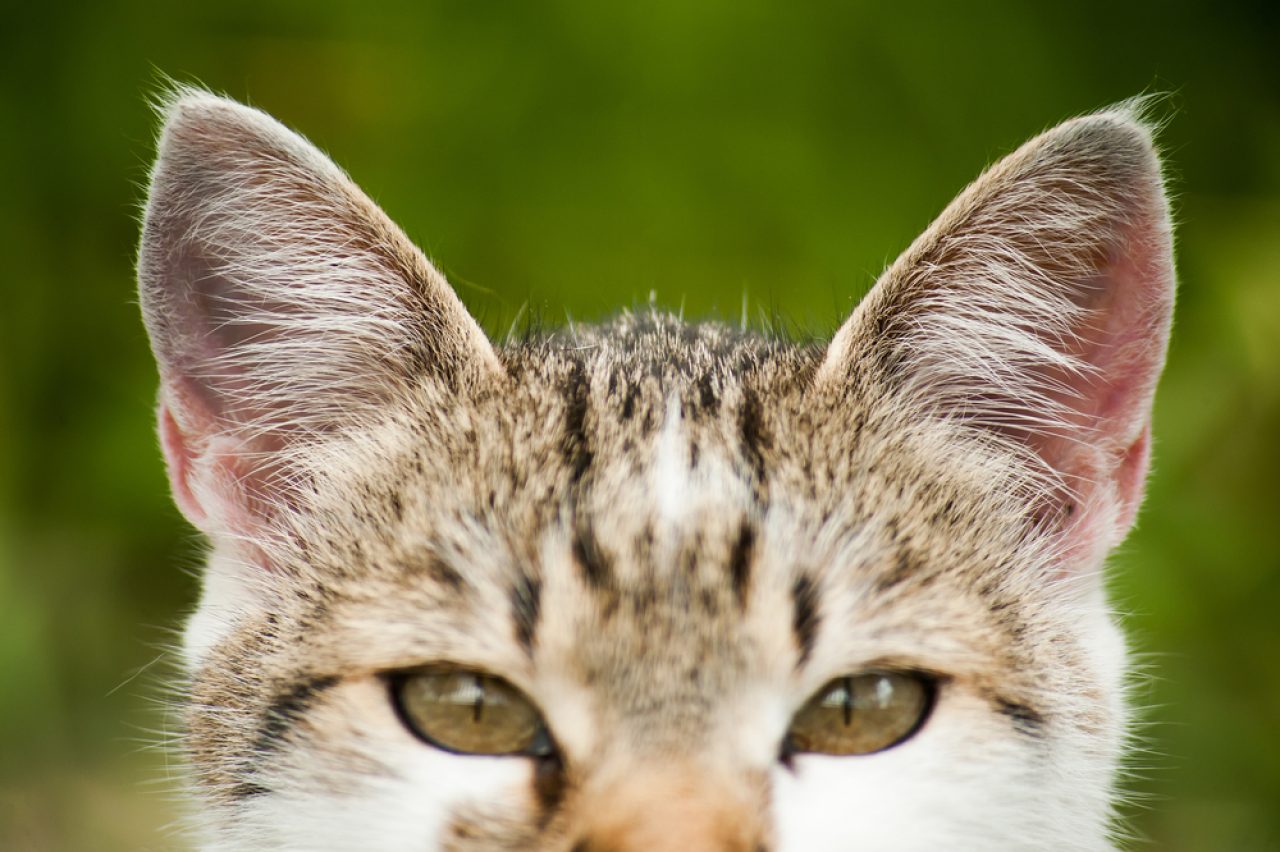
Now, you might not be that happy with the explanation we offered you. “Hmm, but my cat’s ears seem warmer than they should be! They can’t be as hot as my straight-out-of-the-oven Thanksgiving turkey and NOT communicate something’s wrong, right?!”
While a cat’s ears can be warm without sending a message that she’s under the weather, there are times when the warmth might mean something a bit more serious.
Whether she’s warm because she’s weather-sensitive or because she’s contracted a nasty case of ear parasites, throw a glance at our list and ease your mind.
Don’t forget – you can always schedule an appointment with your veterinarian to make sure she’s doing great. Sure, you might be embarrassed to learn you went bonkers for no apparent reason.
But, you could’ve been on to something. And, you checked to make sure both you and your fluffer were happy and healthy.
1. Cats are supposed to be warm
We know you worry about your purrincess’s health, but her ears are supposed to be warm. While you might think there’s something wrong because they felt a little “too warm” while you were petting her head, chances are they’re at a regular temperature.
But, that temperature seems to be different from that of a human. We won’t repeat the whole thing about the difference between cats and humans. Stil, don’t overlook the fact that cats are warmer than you might think; even when they curl up on the couch, looking like they’re freezing to death).
Cats appreciate the cuddles and the snuggles regardless of the temperature. Not to mention the fact that you should be more concerned when your cat’s ears start feeling a little cold. Cold ears almost always communicate something’s off.
Perhaps she’s developing hypothermia because of your poor heating arrangements (or lack thereof). Maybe she’s getting the sniffles because she’s been outside when it was very cold. Either way, warm ears are much, much better.
2. Cats’ temperature changes with the weather

“Is it hot outside, or is it just my cat?”
Sure, a cat’s ears might be warm for a million different reasons. But, your mouser’s ears are probably hotter than the Sahara desert because her temperature changes with the weather.
Therefore, when you’re trying to wrap your head around the heatwave you’ve been experiencing, she’s doing the same thing.
And, cats adore sunbathing and lounging outside on the concrete when there’s nobody there to bother them (because it’s too freakin’ hot).
Actually, you might catch your cat doing the same thing even when during the colder months – they tend to look for a patch of sunshine on the ground to keep themselves warm.
But, you might notice that they’re warmer than you’re comfortable with around the ears, nose, and paws. That’s because the blood flows to those areas to release excess heat – think about the fact that a cat’s paws are some of the only parts that sweat for that same reason.
3. Perhaps the allergy season could be to blame?
It’s not the summer, and it’s not the winter that’s causing her to change her body temperature… Could the allergy season be the one to blame for your cat’s warm ears? Cats can experience allergic reactions to pretty much everything around them (depending on what they’re allergic to).
Grass, pollen, and dust might be a problem for outside cats (or cats that spend a lot of time outside). Mold, certain foods and treats, as well as bedbugs, are reserved for those cats that don’t leave the house as much.
Whatever the case might be, we’re trying to say that a cat’s ears can be warm due to any of these allergens.
And, some of the other symptoms might be sneezing, wheezing, runny nose, watery eyes, coughing, shortness of breath, rashes, and hives. Of course, when you notice any of these symptoms (alongside those warm ears), don’t hesitate to contact your vet.
Whether you’re right or wrong, your vet can run a couple of tests to check for specific allergens. And, granted that he does uncover an allergy or something of the sort, he can prescribe a cat-appropriate antihistamine.
4. She might be catching a fever
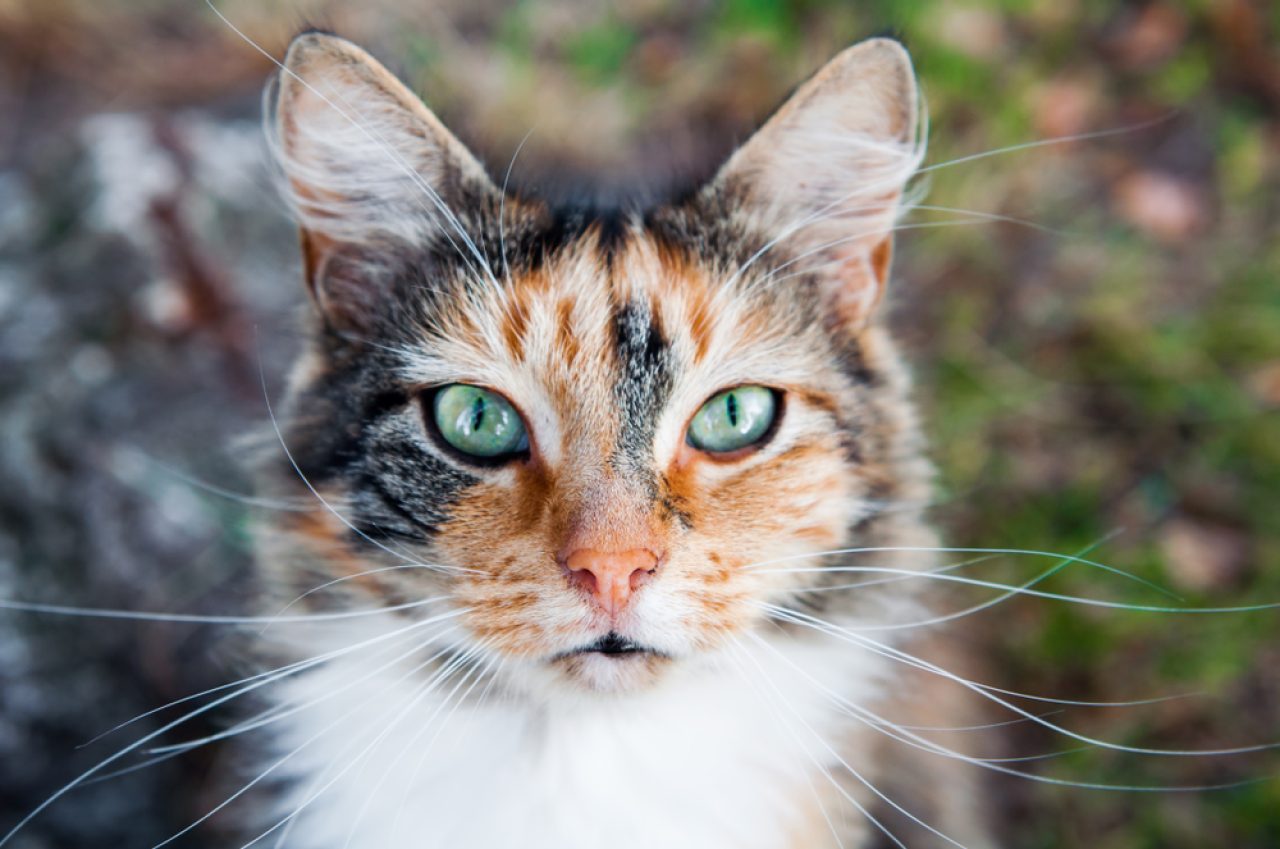
Warm ears could be a sign your cat’s catching a fever, but… Don’t panic before you read everything you need to keep an eye out for. A fever would have to show an array of other symptoms for you to know for sure whether that’s what your fluffy friend’s dealing with.
First and foremost, check your cat’s stomach and underarms for warmth. While you could be able to notice whether she’s hotter than before, you should use a cat thermometer to assess her temperature accurately.
A slight fever shouldn’t be a cause for concern, but anything higher than 103.5˚ F doesn’t scream “normal” anymore. And, given that the fever sticks around for more than a couple of days (or reaches a temperature of 104˚ F), you should contact your vet.
Other symptoms to watch out for are decreased appetite, weight loss, lack of energy, lethargy, depression, decreased grooming, difficulty breathing, and decreased quality of life.
5. Have you checked for mites?
“Argh, please don’t tell me she’s got mites!”
While mites might be the last thing you want your fluffer to deal with, we can’t overlook the possibility that these pesky parasites are the reason why your cat’s ears are warm.
Mites are most common among kittens and cats that spend a lot of time outdoors but can appear regardless of the environment.
Oh, mites can be a real pain in the rear (or should we say ear?) because they cause your cat to scratch, paw, and rub her ears against anything in sight.
And, as you might have guessed, the twisting and turning can cause your cat’s ears to become hotter.
On top of that, you might notice your cat shaking her head, meowing whenever you try to touch her ears, and even losing hair on her ears.
Some of the other symptoms you might catch a glimpse of are inflamed ears, excessive wax, black, dry discharge, and a pungent odor overtaking the room. Poor thing, right?!
6. Have you heard of otitis?
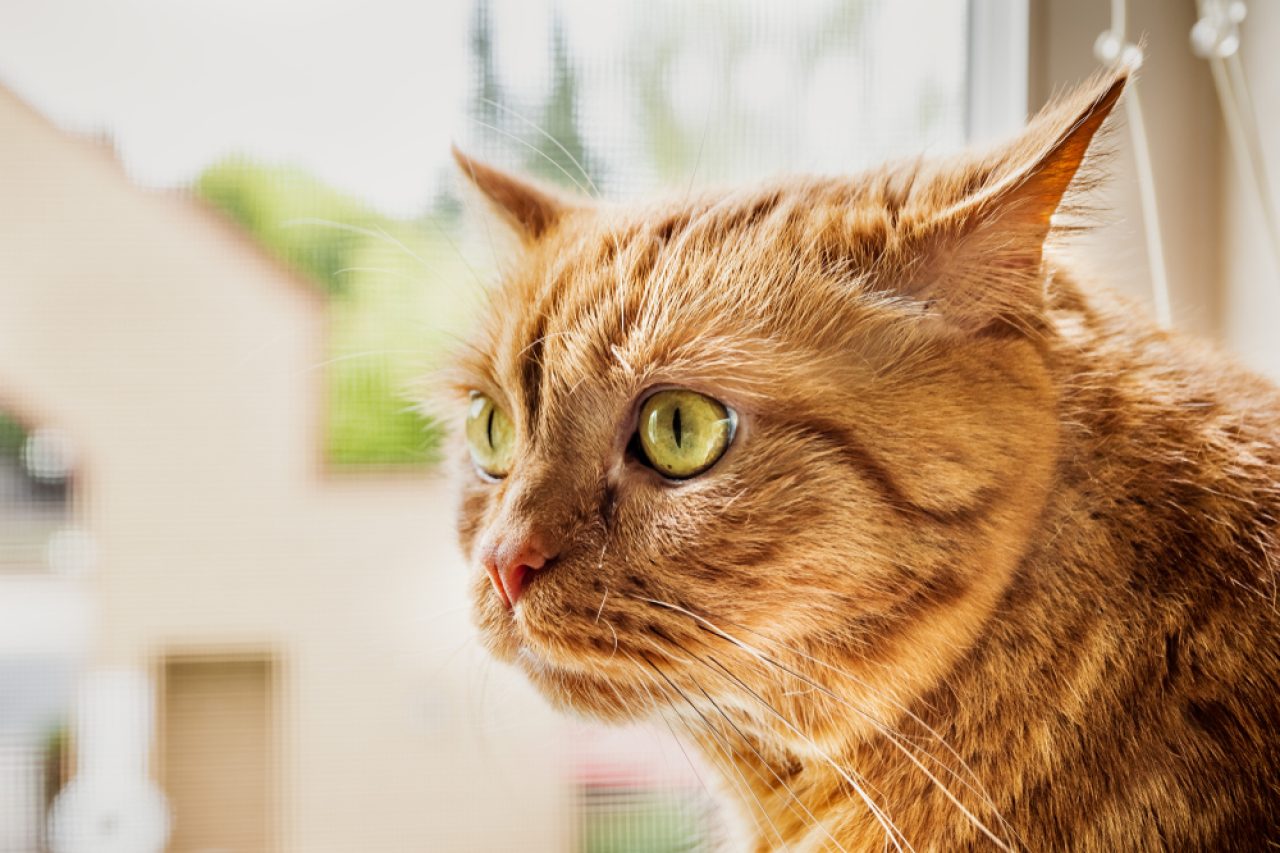
Otitis (or the inflammation of the ear) has to be the most common ear problem a cat can have.
While the inflammation of the ear doesn’t have “warmth” as one of the primary symptoms, the attention your cat might be giving to her ears could cause them to become hotter.
Ear inflammations or infections typically occur because of bacteria or yeast (and often follow the whole “mites predicament”).
Signs that your mouser might be dealing with a case of otitis are aplenty – discharge of some sort (yellow, black, or looks like coffee grounds), swelling, redness, head tilting, pawing at the affected area, shaking of the head, and balance problems.
Needless to say, contact your veterinarian the moment that you notice something’s wrong with your cat’s ears. Ear problems require attention, proper care, and medication to ensure they don’t lead to deafness. Trust me, time doesn’t heal inflamed ears.
7. Ear polyps could make your cat’s ears warm
Watch out, we have even more ear problems heading your way! Ear polyps could make your cat’s ears warm the same way ear inflammations and infections could – not directly, but rather through scratching, pawing, and rubbing of the area. But, what even are ear polyps?
We’re pretty sure you could take a closer look at your cat’s ear and notice whether or not she’s dealing with an ear polyp.
Polyps are benign growths on a long, thin stalk that occur on the outside of a cat’s ear canal (or even on her middle ear). Symptoms are similar to other ear diseases – pawing at the ear, head shaking, head tilting, or discharge from the ear.
To treat an ear polyp, you would have to schedule an appointment with your veterinarian. Polyps are almost always surgically removed.
The veterinarian can remove the polyp with the stalk which would ensure the polyp doesn’t come back. On the other hand, he could remove the polyp without the stalk which wouldn’t guarantee the same results.
8. Ear tumors are something to keep an eye on
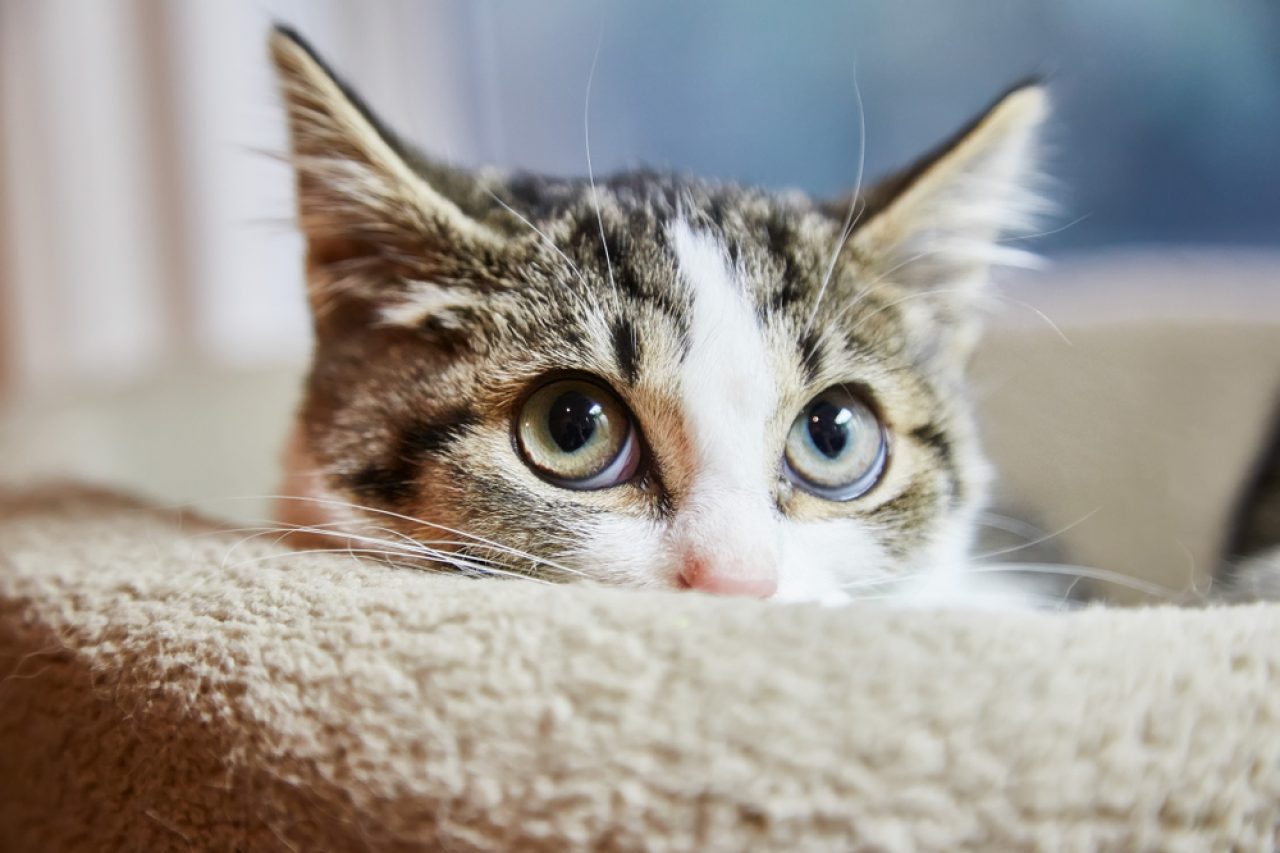
Before you start bawling your eyes out and saying goodbye to your kitty, ear tumors aren’t that common. And, they don’t necessarily cause your cat’s ears to become warm. But, we shouldn’t overlook them – you never know what might be happening regarding your cat’s health and you’re better safe than sorry.
Of course, there are different types of tumors and each comes with a different set of risks. Some of the most common ear tumors are nasopharyngeal polyps, squamous cell carcinomas, and ceruminous gland adenocarcinomas.
While you don’t have to learn these names by heart, you can ask your vet about them – to be safe. On the other hand, lymphoma, fibrosarcoma, and squamous cell carcinomas aren’t as common but can occur around the area of the middle ear.
Don’t steer clear from discussing these possibilities with your vet because he can ease your mind. And, he can provide you with the information you need to understand what your cat might be going through. Either way, a warm cat ear certainly doesn’t mean you might need to euthanize your cat.
Bottom line… Should you worry about your cat’s ears being warm?
There’s probably no reason for you to freak out over your cat’s warm ears. Without other symptoms, strange sounds, or out-of-the-ordinary behaviors, there’s nothing that would suggest something might be wrong.
Don’t forget that a cat’s ears can regulate her body temperature – and, that’s probably what’s going on. Whether she’s been lounging outside during a heatwave.
Whether she’s been snuggling under your blanket waiting for you to come home from work. She’s probably warm because she’s… a cat.
But, when you notice your cat’s been shaking her head, scratching and pawing at her ears, and sporting some gnarly discharge, don’t shy away from contacting your veterinarian.
She might be dealing with some of the health problems we discussed beforehand and you’re better off knowing (and reacting appropriately). Good luck!

